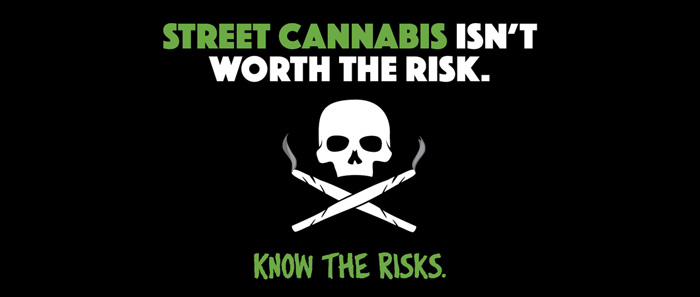Steinbach MLA and Education and Training Minister Kelvin Goertzen announced that the Manitoba government is preparing for the legalization of non-medicinal cannabis across Canada Oct. 17 by launching its public education campaign on cannabis with a focus on public health and safety.
“While the federal government has fast-tracked cannabis legalization, our government has worked hard to ensure measures are in place public health and safety to protect the health and safety of Manitobans,” said Justice Minister Cliff Cullen. “Educating the public on risky behaviours associated with non-medicinal cannabis and implementing legislation to keep people safe are key to readying Manitobans for legalization.”
The public education campaign will expand on those responsibilities and educate Manitobans on risky cannabis behaviours, Cullen said. Messages include “cannabis can be addictive”, “cannabis can cause depression and anxiety” and “street cannabis isn’t worth the risk”.
“First and foremost, we are concerned about the health and safety of Manitobans. We have taken steps to make health the priority as we prepare for the federal legalization of cannabis,” said Health, Seniors and Active Living Minister Cameron Friesen. “This includes legislative changes such as updates to The Non-Smokers Health Protection and Vapour Products Act to protect against second-hand smoke as well as public education initiatives.”
The Manitoba government has developed an overarching framework for cannabis sales, use and safety pending federal cannabis legalization Oct. 17. In the development of the framework, government considered issues related to retail cannabis, the health impacts of cannabis use, the policing and enforcement of new laws, as well as cannabis and youth.
“Manitoba has introduced a hybrid model for the retail of non-medicinal cannabis, which means a combination of government oversight and privately-run stores,” said Growth, Enterprise and Trade Minister Blaine Pedersen. “Our goal is to eliminate the illicit market. We believe cannabis sourced from federally licensed producers and sold by provincially licensed and regulated retailers will better protect the health and safety of Manitobans.”
Manitobans are asked to familiarize themselves with the laws around non-medicinal cannabis including use and possession laws. For example, individuals must be 19 years of age or older to possess and use cannabis. They can only buy from licensed retailers and carry up to 30 grams in public. They also cannot use cannabis in public places and cannot grow it at home.
“It is generally accepted that young people are more likely to experience harm from regular use of cannabis before the age of 25,” said Goertzen. “Our government has taken steps to ensure that parents have the tools they need to talk to their children about cannabis use and its potential consequences, and we’ve targeted this awareness campaign to youth to help get that message across.”
The education minister noted cannabis information and resources are available through Manitoba Education and Training at edu.gov.mb.ca.




